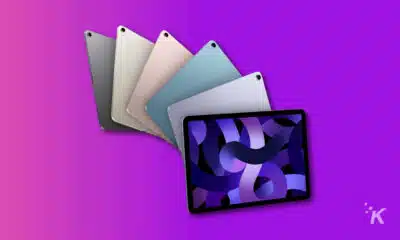News
Malware installed on budget Chinese smartphones have been robbing the world’s poorest people
Transsion should be ashamed of this.

It seems that not a day goes by without yet another Chinese phone manufacturer coming under fire. First, we had Trump’s hatred of Huawei. Then Xiaomi fell under the gavel recently for allegedly stealing customer data. Now we have Transsion, a budget smartphone company, selling Android phones that apparently come with dodgy malware apps.
A report by Buzzfeed in conjunction with Secure-D has found that the company’s Tecno W2 phones are ripping African customers off. Big time. What makes this so inherently wrong is that this is an emerging market. A market whose consumer base includes some of the poorest people in the world. I mean, this kind of behavior is abhorrent anywhere but to target some of the poorest people in the world makes it even worse.
Transsion, hang your head in shame
So, what exactly does the report tell us? Well, pretty much that Transsion is an irresponsible manufacturer, for a start. What company would allow their handsets to reach the market and have malware hidden within the apps? What company would allow these handsets to enter one of the poorest markets in the world? Transsion has denied all responsibility, of course. Instead, they’ve chosen to shift the blame to someone else in the supply chain process.

Image: neo tam from Pixabay
While this may be true, it is Transsion’s responsibility to ensure that their handsets reach their customers in a useable condition. That means ensuring that malware isn’t going to nail a user’s data in one fell swoop. Denying all responsibility is not the way to deal with this. Knowing that they are Africa’s leading smartphone brand—knowing how much money they make from African people—they really should be taking steps to refund users who are out of pocket.
What do we know about the malware?
The malware that Secure-D names in the report come in the form of two apps. The first is a malware they call xHelper. It is well known as being an unkillable app; one that is impossible to remove from a handset. The second is an app they call Triada. This too is a particularly nasty trojan app that works behind the scenes to infect a user’s phone. Both of these apps work by downloading further apps and attempting to trick a smartphone user into installing new apps with sky-high subscription fees. The apps capture these fees from a smartphone user’s pre-paid credit without them even noticing.
Thanks to Secure-D, phone carriers have put a stop to just under 850,000 transactions linked to malware apps. But this is still huge business for the unscrupulous bastards that vend this kind of app. Imagine being so greed-driven that you are willing to pray on the most vulnerable people in the developing world. We need to be holding corporations like Transsion to account and ensuring that they’re not allowing malware to take complete advantage of their customer base. Because, right now, they are, and they should be mortified that their name is linked to this activity.
What do you think? Do you think Transsion is at fault here? Let us know down below in the comments or carry the discussion over to our Twitter or Facebook.
Editors’ Recommendations:
- LG has a wild phone with a swing-out second screen
- The amount of malware on Mac computers is now outpacing PCs
- Apple and Google removed Fortnite from their app stores and now Epic Games is suing
- Can your Android phone get a virus?




























